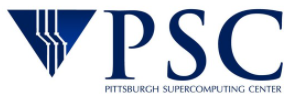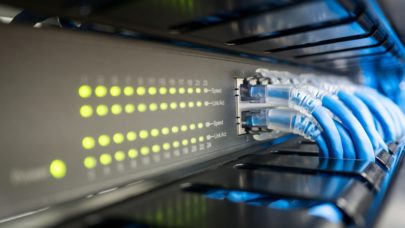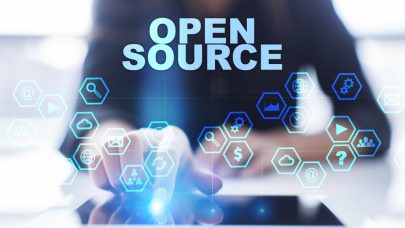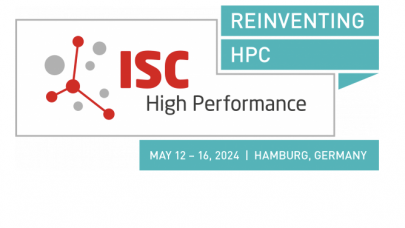April 22, 2022 — The U.S. National Science Foundation (NSF) has awarded $7.5 million over five years to the Resource Allocations Marketplace and Platform Services (RAMPS) project, a next-generation system for awarding computing time in the NSF’s network of supercomputers. Led by the Pittsburgh Supercomputing Center (PSC), a joint program of Carnegie Mellon University and the University of Pittsburgh, RAMPS will also involve partner institutions the National Center for Atmospheric Research (NCAR) in Boulder, Colo., and the National Center for Supercomputing Applications (NCSA) at the University of Illinois Urbana-Champaign.
 RAMPS has been funded as a part of the NSF’s new ACCESS (Advanced Cyberinfrastructure Coordination Ecosystem Services and Support) program, which reorganizes management of a range of services that support a national federation of NSF high-performance computing (HPC) systems and related resources. ACCESS succeeds the XSEDE program, in which PSC was a leading member. ACCESS will democratize the allocations, user support and other infrastructure elements providing HPC to U.S. investigators and their collaborators. RAMPS will be the allocations component of ACCESS, awarding time on PSC computers such as the flagship Bridges-2 advanced research computer and the experimental Neocortex artificial intelligence system as well as other NSF-funded systems across the country.
RAMPS has been funded as a part of the NSF’s new ACCESS (Advanced Cyberinfrastructure Coordination Ecosystem Services and Support) program, which reorganizes management of a range of services that support a national federation of NSF high-performance computing (HPC) systems and related resources. ACCESS succeeds the XSEDE program, in which PSC was a leading member. ACCESS will democratize the allocations, user support and other infrastructure elements providing HPC to U.S. investigators and their collaborators. RAMPS will be the allocations component of ACCESS, awarding time on PSC computers such as the flagship Bridges-2 advanced research computer and the experimental Neocortex artificial intelligence system as well as other NSF-funded systems across the country.
“RAMPS will provide a highly innovative marketplace that will break down the barriers to researchers getting access to needed national research resources,” said Shawn Brown, director of PSC and principal investigator in RAMPS. “PSC is extremely honored to be selected to help lead our community through this new cyberinfrastructure program.” The co-principal investigators of RAMPS will be David Hart of NCAR and Laura Herriott of NCSA.
 Through XSEDE, NSF transformed scientific exploration by putting increasingly powerful machines at the disposal of new communities of investigators from disciplines such as biology, medicine, epidemiology, ecology, social sciences and the digital humanities that never before needed computing — let alone HPC — as well as “traditional” supercomputing users in physics, chemistry and engineering. But the RAMPS collaborators, in proposing the new project, saw an opportunity for even more democratization of NSF HPC services via a profound re-think on how HPC is awarded to users. RAMPS will expand and ease access to an even wider community of investigators by:
Through XSEDE, NSF transformed scientific exploration by putting increasingly powerful machines at the disposal of new communities of investigators from disciplines such as biology, medicine, epidemiology, ecology, social sciences and the digital humanities that never before needed computing — let alone HPC — as well as “traditional” supercomputing users in physics, chemistry and engineering. But the RAMPS collaborators, in proposing the new project, saw an opportunity for even more democratization of NSF HPC services via a profound re-think on how HPC is awarded to users. RAMPS will expand and ease access to an even wider community of investigators by:
- Structuring the awards system so that, though users’ proposals will still be awarded based on their own merit, the NSF HPC resources will compete for users rather than the other way around.
- Establishing a hierarchy of opportunities so that smaller amounts of needed computational time will be accessible through simpler, quicker applications, with requirements for proposal details and prior research results scaling up in proportion to the computation needed. This component should especially ease entry for investigators from fields that have not traditionally used HPC.
- Allowing an increased number of proposals reviewed and accepted, booking time on the machines in the ACCESS ecosystem more efficiently to maximize the amount of research the system enables.
- Ensuring full participation by investigators who have been under-served in the science, technology, engineering and mathematics (STEM) fields through an explicit diversity, equity and inclusion (DEI) component, overseen by a dedicated diversity facilitator.
- Building RAMPS up to be reliable and robust at the outset by starting with the existing eXtensible Resource Allocation Services (XRAS) technology, which powered allocations for XSEDE. Creation and operation of XRAS was led by the members of the RAMPS team.
“The ACCESS awards implement an agile and scalable fabric of innovative services with the goal of ensuring democratized and equitable access to NSF’s advanced cyberinfrastructure ecosystem and broadening its transformative impacts,” said Manish Parashar, office director in the Office of Advanced Cyberinfrastructure at NSF. “ACCESS will flourish through connectivity with a broadening spectrum of CI communities and other NSF programs such as Training-based Workforce Development for Advanced CI. It is exciting to see how many active CI communities, campus champions, and research coordination networks have agreed to collaborate as integral partners of the ACCESS teams.
PSC is a partner in another ACCESS grant, to the COre National Ecosystem for CyberinfrasTructure (CONECT) project. The $20-million, five-year award will deliver innovative integrations across the NSF-funded cyberinfrastructure ecosystem in operations, data, networking and cybersecurity. CONECT will employ agile mechanisms to integrate rapidly diversifying non-traditional resources by building on the successes of its predecessors to create a more dynamic, inclusive, reliable and secure ecosystem.
CONECT will be led by the National Center for Supercomputing Applications at the University of Illinois Urbana-Champaign in partnership with PSC, the Florida International University, Indiana University, the San Diego Supercomputer Center at UC San Diego and the University of Chicago.
The RAMPS project will begin building the new allocation system starting on May 1, 2022.
About the Pittsburgh Supercomputing Center (PSC)
The Pittsburgh Supercomputing Center (PSC) is a joint computational research center with Carnegie Mellon University and the University of Pittsburgh. PSC provides university, government and industrial researchers with access to several of the most powerful systems for high-performance computing, communications and data storage available to scientists and engineers nationwide for unclassified research. PSC advances the state of the art in high-performance computing, communications and data analytics and offers a flexible environment for solving the largest and most challenging problems in research. See www.PSC.edu.
Source: PSC


























































